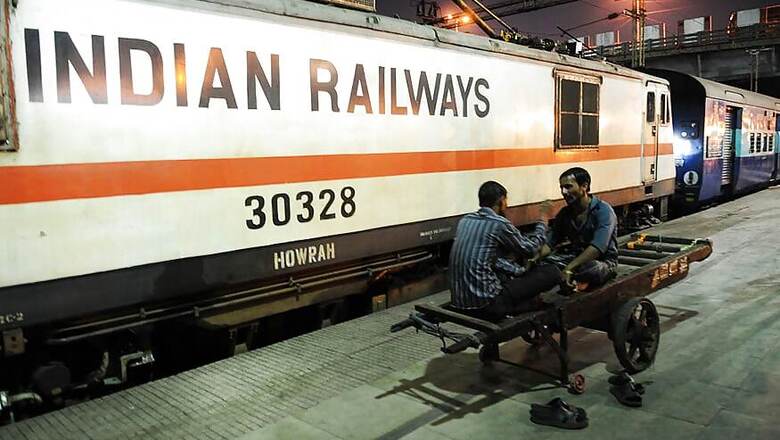
views
New Delhi: The railway ministry is the biggest litigant among the government departments as it is a party to over 66,000 cases pending in courts across the country, the law ministry says.
Government litigation includes service matters, disputes with private entities as well as disputes between two government departments and two PSUs, according to a law ministry document of June 2017.
Citing data available on the Legal Information Management and Briefing System (LIMBS) website, the document states that as of June 12 – 1,35,060 government cases and 369 contempt cases against government or its officials were pending in courts.
Railways with 66,685 cases pending has the highest number of pending cases. Out of the total, 10,464 cases are pending for more than 10 years.
The Ministry of Panchayati Raj with three pending cases has the least number of pendency among government departments. The document clarifies that as the LIMBS is a dynamic website, the data is constantly changing.
The finance ministry follows the Railways with 15,646 cases. The Ministry of Communication has 12,621 cases pending in courts. The Ministry of Home Affairs is the fourth biggest litigant with 11,600 cases, the document states.
In a letter addressed to his cabinet colleagues heading various ministries, Law Minister Ravi Shankar Prasad had recently said that the "government must cease to be a compulsive litigant... the judiciary has to spend its maximum time in tackling cases where the government is a party, and the burden on the judiciary can only be reduced if the cases are filed after taking a careful and considered view."
The law minister's letter to his cabinet colleagues and the chief ministers came at a time when the Centre is working to bring out a national litigation policy since 2010. Several states have already adopted their separate litigation policies.
Prime Minister Narendra Modi had in October termed the government as the "biggest litigant" and had pushed for a need to lessen the load on the judiciary which spends its maximum time in tackling cases where the government is a party.

















Comments
0 comment